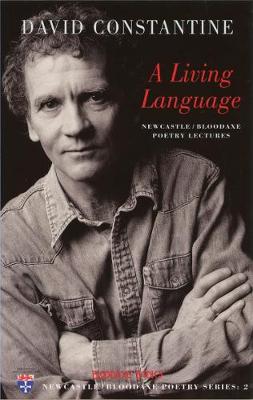Newcastle/Bloodaxe Poetry
1 total work
In this innovative series of public lectures at Newcastle University, leading contemporary poets speak about the craft and practice of poetry to audiences drawn from both the city and the university. The lectures are then published in book form by Bloodaxe, giving readers everywhere the opportunity to learn what the poets themselves think about their own subject.
David Constantine's three lectures have to do with the chief end and means of poetry: a lively and effective language. In the first, Translation Is Good For You, drawing mainly on the life, letters and poems of Keats, he considers translation as a way to a poetic identity and a language of one's own. In the second, Use and Ornament, Constantine looks at the particular case of a poet, Brecht, who wanted his writing to be useful but who understood better than most what the peculiar resources and responsibilities of the lyric poem are Wilfred Owen and Keith Douglas are also considered in this context. The third lecture, Poetry of the Present, largely concerned with Walt Whitman and D.H. Lawrence, discusses the ambition of free verse to convey the abundance and quickness of life in the truest (liveliest) way. The sonnets and other fixed forms used by Rilke are offered as an alternative. In all three lectures there is a continual effort to define the good effects a poem may have when, by whatever means, it achieves its ends.
David Constantine's three lectures have to do with the chief end and means of poetry: a lively and effective language. In the first, Translation Is Good For You, drawing mainly on the life, letters and poems of Keats, he considers translation as a way to a poetic identity and a language of one's own. In the second, Use and Ornament, Constantine looks at the particular case of a poet, Brecht, who wanted his writing to be useful but who understood better than most what the peculiar resources and responsibilities of the lyric poem are Wilfred Owen and Keith Douglas are also considered in this context. The third lecture, Poetry of the Present, largely concerned with Walt Whitman and D.H. Lawrence, discusses the ambition of free verse to convey the abundance and quickness of life in the truest (liveliest) way. The sonnets and other fixed forms used by Rilke are offered as an alternative. In all three lectures there is a continual effort to define the good effects a poem may have when, by whatever means, it achieves its ends.
